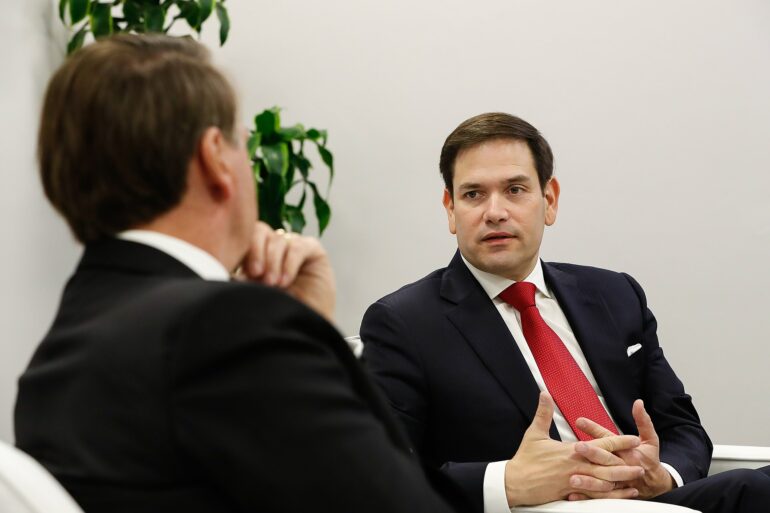Secretary of State Marco Rubio reportedly announced that Palestinian Authority President Mahmoud Abbas and his delegation will not be permitted to attend the United Nations General Assembly in September, an extraordinary step by the Trump administration aimed at holding the Palestinian leadership accountable for ties to terrorism and international lawfare campaigns.
“In compliance with the laws and national security interests of the United States, Secretary of State Marco Rubio is denying and revoking visas from members of the Palestine Liberation Organization (PLO) and the Palestinian Authority (PA) ahead of the upcoming UN General Assembly,” said State Department Principal Deputy Spokesperson Tommy Pigott in a statement.
The decision reflects a harder line toward Abbas and his allies, who have for years sought to use the international stage to pressure Israel while continuing to maintain policies that critics say directly reward violence.
“Before they can be taken seriously as partners for peace, the PA and PLO must repudiate terrorism, lawfare campaigns at the ICC and ICJ, and the pursuit of unilateral recognition of statehood,” Pigott said.
He added that the PA Mission to the UN will still be granted waivers in accordance with the UN Headquarters agreement, ensuring compliance with international obligations, but emphasized that the United States “remains open to re-engagement should the PA/PLO demonstrably take concrete steps to return to constructive engagement.”
The move places the spotlight squarely on Abbas, whose leadership of the Palestinian Authority has long been defended in Western capitals as a “moderate” counterweight to Hamas.
Yet critics argue that the distinction is overstated, pointing to the Authority’s continued operation of the Palestinian Authority Martyrs Fund — a program that distributes payments to families of Palestinians who were killed, injured, or imprisoned after carrying out attacks against Israelis.
For conservatives, the Martyrs Fund has become emblematic of the PA’s refusal to embrace peace and its insistence on normalizing violence.
By revoking visas, Rubio and the administration are sending a message that American policy will not allow Palestinian leaders to pursue diplomatic recognition abroad while continuing practices at home that, critics say, glorify terrorism.
The Trump administration has consistently sought to reframe U.S. policy in the Middle East around a demand for accountability from the Palestinians, a contrast to decades of Washington’s approach that often granted them a seat at the table despite little evidence of reform.
The timing is significant. The annual General Assembly in New York provides Abbas with one of his most visible international platforms, and in past years, he has used the venue to attack Israel and lobby foreign governments for unilateral recognition of Palestinian statehood.
By barring his attendance, the administration is denying him that opportunity and reinforcing its position that peace cannot be built on speeches abroad while violence is incentivized at home.
For Rubio, the decision underscores a broader principle: that American support and access to international platforms should be conditioned not on rhetoric, but on demonstrable commitments to peace and security.
[READ MORE: Trump Ends Secret Service Protection for Kamala Harris, Revoking Biden’s Extension]



